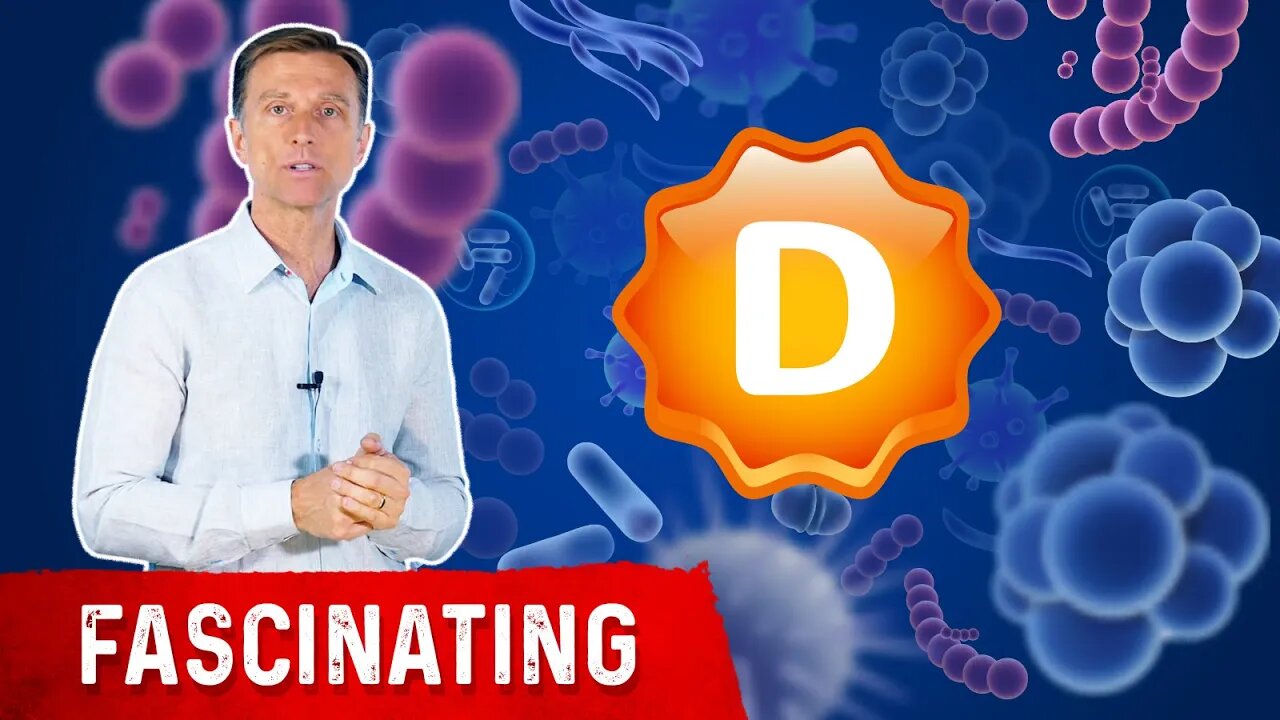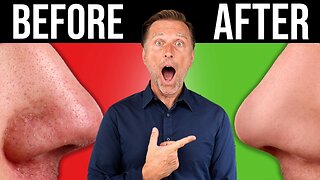Premium Only Content

Vitamin D Actually Feeds Your Microbes
Vitamin D is essential for a healthy gut microbiome—find out why! In this video, we’re going to talk about vitamin D and your microbes.
Timestamps
0:00 Introduction: Vitamin D feeds microbes
0:53 Your microbes produce nutrients
1:42 Subclinical vitamin D deficiency
3:38 Vitamin D deficiency in winter months
4:37 Share your success story!
Vitamin D and Inflammation:
▶️ https://youtu.be/Q2P6Q76rfEA
▶️ https://youtu.be/EvGH3kG5u4c
DATA:
https://www.nature.com/articles/s41598-020-77806-4
Vitamin D is essential for feeding the healthy bacteria in your gut. In fact, gut microbes are dependent on the vitamin D you get from the sun or ingest.
Along with fiber, vitamin D helps support microbial diversity in your gut. Low vitamin D can throw off your microbiome ratios.
Supporting your microbiome with vitamin D is also crucial for normal levels of butyrate. Butyrate is the small-chain fatty acid that helps regulate your blood sugar levels, feed your colon cells, energize your body, and improve your insulin sensitivity.
Additionally, a poor microbiome caused by low vitamin D can contribute to a deficiency in B vitamins. This is because microbes are a primary source of many B vitamins.
The majority of the population has a subclinical vitamin D deficiency. Oftentimes, a subclinical deficiency isn’t detected in a blood test.
40% of people in the US and Europe have low vitamin D, and up to 85% of people in Arabic countries have low vitamin D.
Vitamin D deficiency can increase your risk of…
• Cancer
• Diabetes
• Heart attack
• Autoimmune disease
• IBD
• Allergies
• Asthma
• Dermatitis
• Regular colds
• Depression
• Weight gain
Vitamin D is essential for the integrity of your gut epithelium. Since 80% of your immune system resides in your gut, an issue with your gut wall (or even leaky gut) can cause serious immune problems. It may cause your immune system to attack your own healthy cells. This is why low vitamin D is associated with autoimmunity and inflammation.
It’s more difficult to maintain normal levels of vitamin D in the winter months. To help combat this, you can take at least 10,000IU of vitamin D daily.
Dr. Eric Berg DC Bio:
Dr. Berg, age 57, is a chiropractor who specializes in Healthy Ketosis & Intermittent Fasting. He is the author of the best-selling book The Healthy Keto Plan, and is the Director of Dr. Berg Nutritionals. He no longer practices, but focuses on health education through social media.
Follow Me On Social Media:
Facebook: https://bit.ly/FB-DrBerg
Instagram: https://bit.ly/IG-DrBerg
Anchor: https://bit.ly/Anchor-DrBerg
TikTok: https://bit.ly/TikTok-DrBerg
Send a Message to his team: https://m.me/DrEricBerg
Disclaimer:
Dr. Eric Berg received his Doctor of Chiropractic degree from Palmer College of Chiropractic in 1988. His use of “doctor” or “Dr.” in relation to himself solely refers to that degree. Dr. Berg is a licensed chiropractor in Virginia, California, and Louisiana, but he no longer practices chiropractic in any state and does not see patients so he can focus on educating people as a full time activity, yet he maintains an active license. This video is for general informational purposes only. It should not be used to self-diagnose and it is not a substitute for a medical exam, cure, treatment, diagnosis, and prescription or recommendation. It does not create a doctor-patient relationship between Dr. Berg and you. You should not make any change in your health regimen or diet before first consulting a physician and obtaining a medical exam, diagnosis, and recommendation. Always seek the advice of a physician or other qualified health provider with any questions you may have regarding a medical condition.
#keto #ketodiet #weightloss #ketolifestyle
Thanks for watching. I hope this helped explain the importance of vitamin D for your microbes. I’ll see you in the next video.
-
 5:56
5:56
Dr. Eric Berg
15 days agoThe BEST BLACKHEAD & Acne Remedy in the World (One-Time Fix)
5.35K5 -
 LIVE
LIVE
LFA TV
23 hours agoLFA TV FRIDAY ALL DAY STREAM 6.13.25 1
857 watching -
 1:32:31
1:32:31
Redacted News
4 hours agoEMERGENCY BROADCAST! IS THIS WORLD WAR 3? U.S. PREPS FOR MASSIVE RETALIATION, KINGS DAY FALSE FLAGS
121K332 -
 1:05:15
1:05:15
vivafrei
6 hours agoDemocrats Latest Political Stunt! Gavin Newsom's Premature Victory Lap! Rick Wilson is a POS & MORE!
77.6K45 -
 2:01:14
2:01:14
Pop Culture Crisis
4 hours agoBonnie Blue BANNED, Tradwife Nara Smith BULLIED, Actress FAKES Brain Cancer?! | Ep. 856
43.3K2 -
 LIVE
LIVE
Akademiks
6 hours agoDiddy Trial Day 23: Kanye West Shows up to Support DIDDY n CONFRONT JANE DOE Day 5/30
1,611 watching -
 11:35
11:35
Silver Dragons
3 hours agoGold Price SOARING & Fort Knox Gold Audit IMPENDING
18.9K2 -
 59:56
59:56
Crypto Power Hour
12 hours ago $0.86 earnedCrypto Trading With GROK
36.6K3 -
 1:14:30
1:14:30
Jeff Ahern
4 hours ago $1.26 earnedFriday Freak Out with Jeff Ahern
28.5K5 -
 15:17
15:17
Russell Brand
4 hours agoIt's about time...
69.1K101